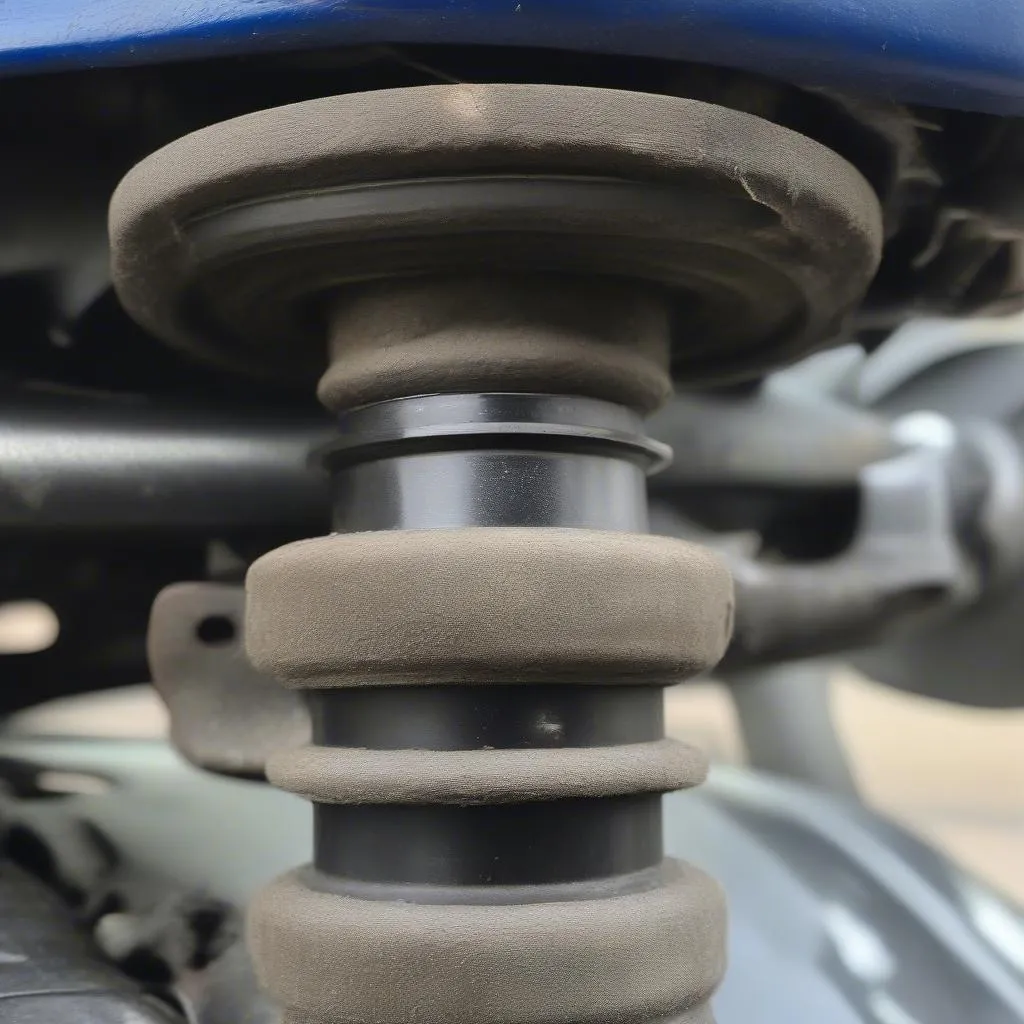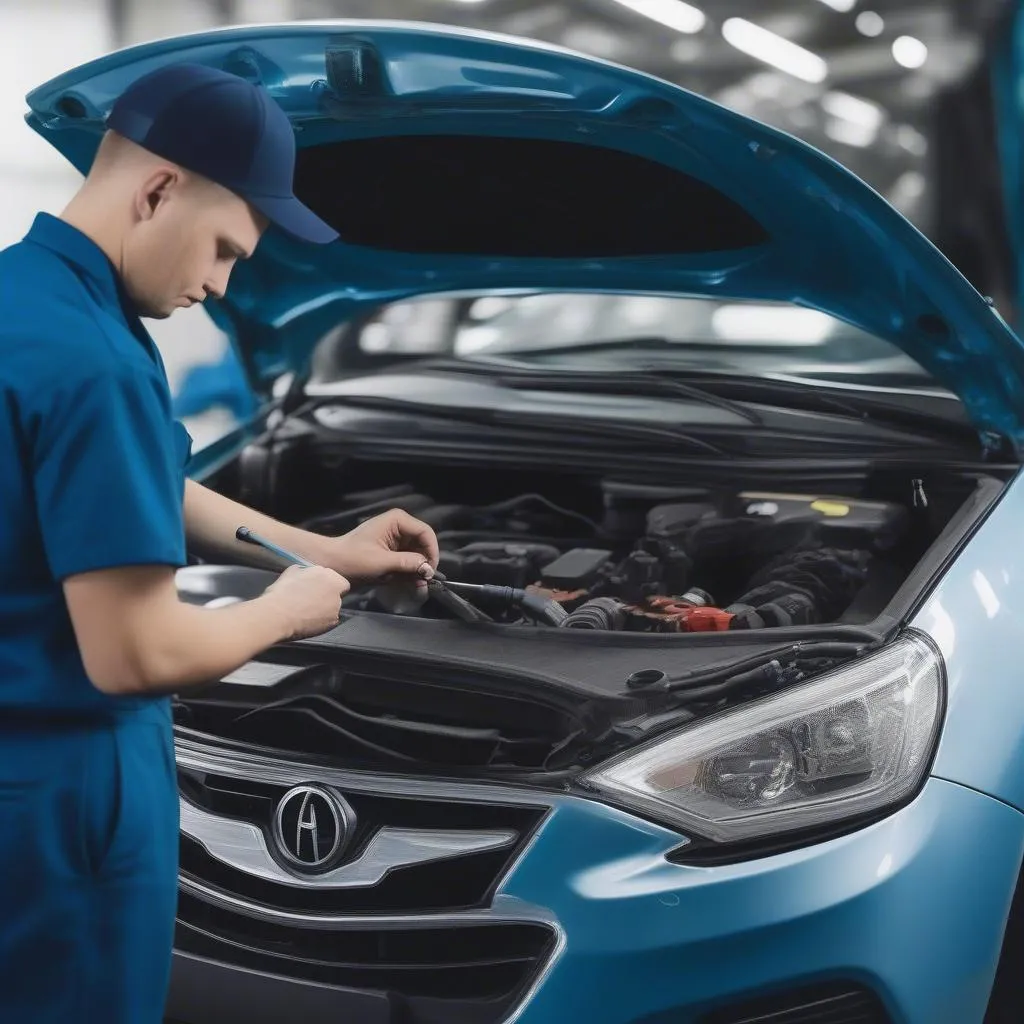“Vroom, vroom…BRRRTTT!” That’s how my 2018 Ford Focus felt yesterday pulling away from a stoplight on Sunset Boulevard. A loud vibration shook the whole car as I accelerated. Sound familiar? A loud vibration when accelerating is never a good sign, and it can indicate a range of issues from minor annoyances to serious mechanical problems. But don’t panic! Understanding the cause is the first step to a smooth, quiet ride.
Decoding the Rumble: What Does “Loud Vibration When Accelerating” Even Mean?
For car enthusiasts and seasoned mechanics, “loud vibration when accelerating” paints a vivid picture. Imagine this: you’re at a standstill, foot on the brake. You hit the gas, and instead of a smooth surge of power, your car shudders and vibrates, accompanied by an unfamiliar growl. That, my friends, is the sound of your car crying out for attention!
Technically speaking, this vibration is a sign of uneven power delivery or misaligned components. It usually points to a problem in the drivetrain – the complex system that transfers power from your engine to the wheels.
“A vibration on acceleration is almost always a sign that something is out of balance in the drivetrain,” says automotive expert, Dr. Emily Carter, author of “The Complete Guide to Modern Car Repair.” “It could be anything from a worn-out engine mount to a failing CV joint.”
Why is My Car Vibrating Like Crazy? Let’s Investigate!
Several culprits can be responsible for that bone-jarring vibration:
1. Engine Mounts: Your Engine’s Tired Cushions
Think of engine mounts like shock absorbers for your engine. They absorb vibrations and keep your engine from bouncing around in your engine bay. Over time, these mounts can wear out, causing excessive engine movement and those dreaded vibrations, especially during acceleration when the engine is under load.
2. Worn-Out CV Joints: The Weak Links in Your Axle’s Chain
Constant Velocity (CV) joints allow your front wheels to turn smoothly while still receiving power from the engine. Damaged CV joint boots can leak grease, leading to wear and tear. A worn-out CV joint can cause vibrations that worsen with acceleration, often accompanied by a clicking sound.
3. Fuel System Issues: Starved for Power
A misfiring engine can also cause vibrations. This misfire could be due to faulty spark plugs, clogged fuel injectors, or a failing fuel pump. When your engine isn’t getting the fuel it needs, it can result in jerky acceleration and vibrations.
4. Transmission Troubles: Shifting into Trouble
Your transmission is responsible for shifting gears and transferring power from the engine to the wheels. A slipping transmission or worn-out transmission mounts can cause vibrations, particularly during acceleration.
 Worn CV Joint
Worn CV Joint
Stop the Shaking: Resolving the Vibration Mystery
Identifying the root cause is key to fixing the problem. Here’s what you can do:
- Check for Obvious Signs: Inspect your engine mounts and CV boots for visible damage or leaks.
- Listen Closely: Pay attention to any unusual noises accompanying the vibration, such as clicking, clunking, or grinding.
- Consult a Professional: If you can’t pinpoint the issue yourself, take your car to a trusted mechanic specializing in European cars, especially if you drive a BMW, Mercedes, or Audi. They have the expertise and dealer-level diagnostic tools to accurately diagnose and fix the problem.
Remember, ignoring vibrations can lead to more severe damage down the line. Addressing the issue promptly will save you headaches and costly repairs in the long run.
FAQs: Your Burning Questions Answered
Q: Can a bad wheel bearing cause vibration when accelerating?
A: While a bad wheel bearing typically causes a humming or rumbling noise that changes with speed, it can sometimes lead to vibrations, especially during acceleration.
Q: Is it safe to drive with a loud vibration when accelerating?
A: It’s not recommended. Driving with a severe vibration can be dangerous and potentially cause further damage to your car.
Q: How much does it cost to fix a vibration when accelerating?
A: The cost depends on the underlying cause. Replacing engine mounts might cost a few hundred dollars, while transmission repairs can run into thousands.
Keep Your Car Humming: More Helpful Resources
Need Expert Help? We’re Just a Message Away!
Experiencing a loud vibration when accelerating? Don’t let it ruin your drive! Our team of automotive experts is here to help. Contact us via Whatsapp at +84767531508 for assistance with diagnostics and repairs. We offer 24/7 support and specialize in dealer-level diagnostic tools for European cars.
 Car diagnostics
Car diagnostics
Drive Smooth, Drive Safe
Remember, a well-maintained car is a happy car (and driver!). By addressing vibrations and unusual noises promptly, you can ensure a safe and enjoyable driving experience for miles to come.
Do you have any other car-related questions or concerns? Share your thoughts in the comments below, and don’t forget to check out our other informative articles on Diag XCar.